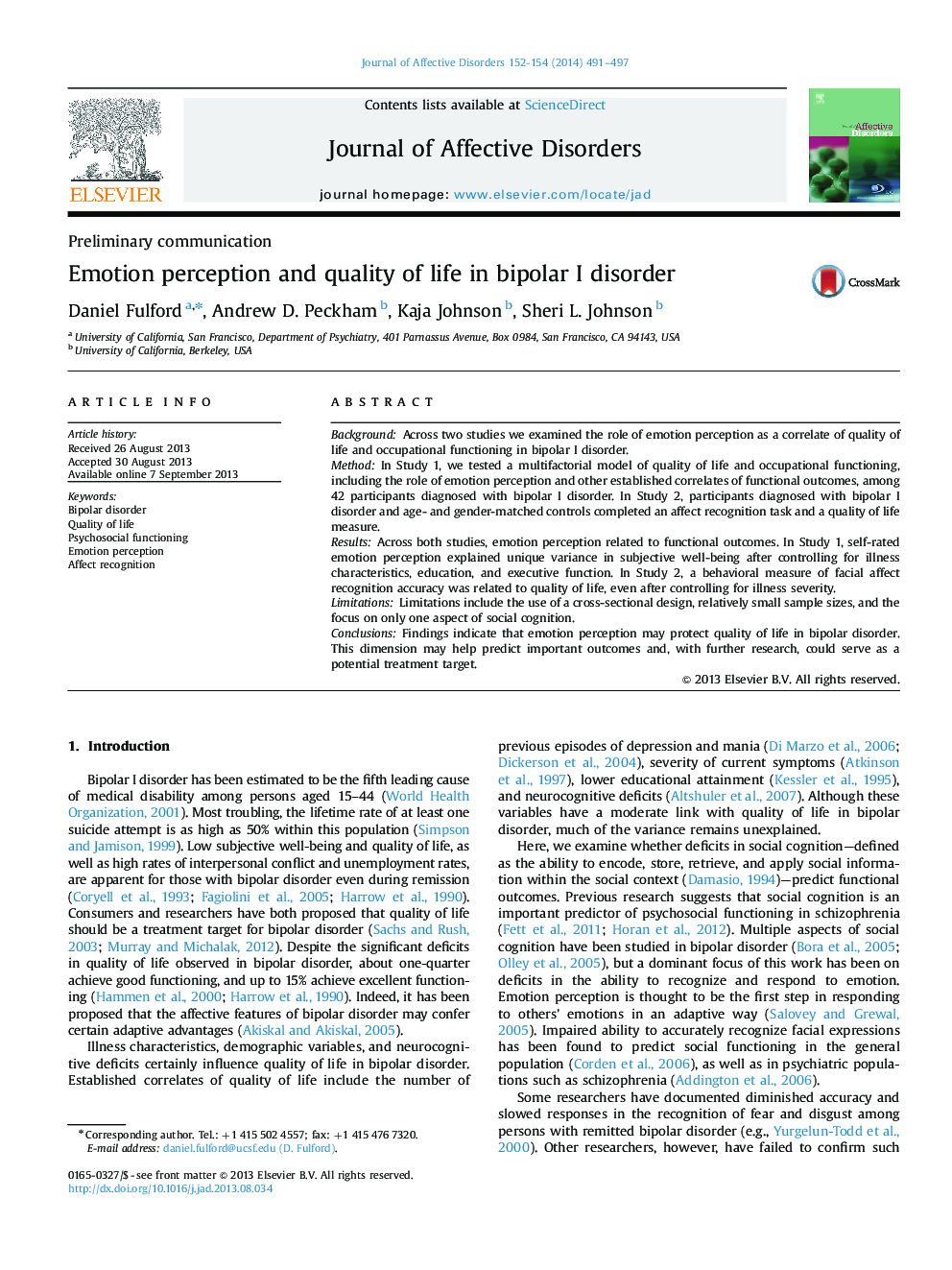| Article ID | Journal | Published Year | Pages | File Type |
|---|---|---|---|---|
| 6233250 | Journal of Affective Disorders | 2014 | 7 Pages |
BackgroundAcross two studies we examined the role of emotion perception as a correlate of quality of life and occupational functioning in bipolar I disorder.MethodIn Study 1, we tested a multifactorial model of quality of life and occupational functioning, including the role of emotion perception and other established correlates of functional outcomes, among 42 participants diagnosed with bipolar I disorder. In Study 2, participants diagnosed with bipolar I disorder and age- and gender-matched controls completed an affect recognition task and a quality of life measure.ResultsAcross both studies, emotion perception related to functional outcomes. In Study 1, self-rated emotion perception explained unique variance in subjective well-being after controlling for illness characteristics, education, and executive function. In Study 2, a behavioral measure of facial affect recognition accuracy was related to quality of life, even after controlling for illness severity.LimitationsLimitations include the use of a cross-sectional design, relatively small sample sizes, and the focus on only one aspect of social cognition.ConclusionsFindings indicate that emotion perception may protect quality of life in bipolar disorder. This dimension may help predict important outcomes and, with further research, could serve as a potential treatment target.
